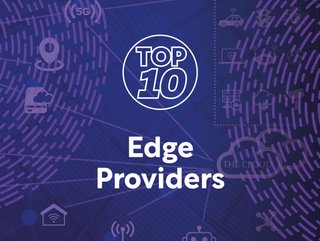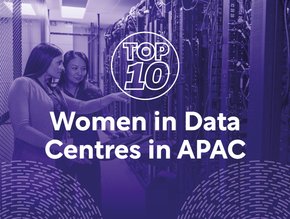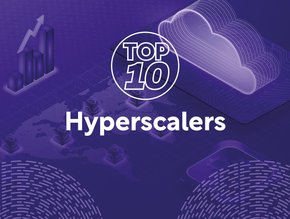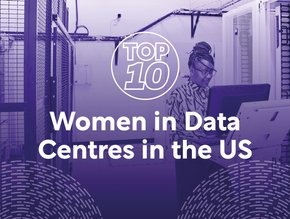
Edge providers are individuals that provide content, applications, services and devices accessed over the internet.
Given that most businesses rely on public cloud hosting for their applications, edge computing is fast becoming a way to optimise data centre operations and services. Edge data centres have the ability to process and analyse data faster and more effectively, which can be crucial for applications that require low latency or high bandwidth.
With this in mind, Data Centre Magazine considers some of the leading edge providers that are committed to enhancing global connectivity and efficiencies within a data centre.
10. VMware
VMware aims to bring together service provider, edge and SASE teams to help customers and partners better deliver apps and services. Its SASE Platform aims to provide secure and reliable application access for workforces regardless of location.
Users can build, run, manage, connect and protect their edge-native, with the company’s Edge Compute Stack platform seeking to combine flexible infrastructure, AIOps and cloud integrations to deliver powerful edge computing.
In 2023, the company debuted VMware Private AI to bring expanded compute capacity to enterprise data centres.
9. Salesforce
Salesforce is primarily a SaaS provider that often markets directly to line departments rather than IT organisations. It offers a ‘virtual edge’ that doesn’t rely on on-premises hosting.
Its Salesforce Edge Network is a network technology that improves the network experience, with consistent quality content delivery and improved download times, no matter where users are located. Instead of sending network requests directly to the Salesforce data centre, the network directs requests to the closest Salesforce location where the Salesforce Edge Network is deployed.
8. Oracle
Oracle's Cloud Infrastructure Edge Services provide capabilities for web application security, DDoS protection, DNS, traffic management and email delivery. These services are delivered securely through a network of high-capacity edge locations and work to protect customers from external and internal threats.
According to TechTarget, Oracle’s edge strategy is most appealing to enterprises that are already customers of its cloud services. However, Oracle's Roving Edge approach includes the processing of content, AI and machine learning, remote and distributed computing and the Internet of Things (IoT).
Roving Edge Infrastructure provides the same look and feel as the Oracle Cloud console, making it effortless to adopt and deploy.
7. HPE
HPE has a range of edge solutions designed to transform workplaces, venues, and cities. The company aims to help customers accelerate their edge to cloud transformation, particularly via its HPE Network Services for Cloud platform.
The platform consists of a family of services that are designed to address the need for customers to modernise their network architecture in order to better build a hybrid cloud and multi-cloud network. HPE also provides converged edge systems to help protect and secure data by converging IT with OT.
6. IBM
IBM provides autonomous management offerings that aim to address the scale, variability and rate of change in edge environments. Additionally, the company’s solutions help communications companies modernise their networks and deliver new services at the edge.
The company has a cloud-based approach to edge computing and promotes the use of IBM management tools and services to better unify the edge with a vision of hybrid and multi-cloud services. In particular, the IBM Edge Application Manager helps users manage edge workloads across any hybrid multi-cloud environment.
5. Dell Technologies
Dell is best known as a hardware provider and well-known in the server market, with its edge vision based on its data centre server strategy to edge locations. With an understanding of the transformative potential of edge computing, Dell has developed its NativeEdge edge software platform, which is designed to simplify, secure, and optimise edge deployments across multiple industries.
The company provides a unified management interface for Dell's edge computing hardware, enabling centralised control and configuration of distributed edge infrastructure.
4. NVIDIA
NVIDIA aims to explore edge solutions for businesses, with its offerings transforming possibility into real-world results. It utilises an automating intelligence at the point of action to drive decisions in real-time, with company’s EGX Edge Computing Platform enabling organisations to deploy, manage, and scale edge computing solutions across their distributed infrastructure.
In particular, NVIDIA AI-on-5G is a unified platform that simplifies the deployment of AI applications over 5G edge networks. The platform aims to bring together expansive 5G connectivity, powerful compute and AI to accelerate the digital transformations.
3. Microsoft Azure
With Microsoft currently executing its plans to invest millions into AI-led data centres, the company has numerous tools designed for IoT and edge applications. In particular, the Microsoft Azure platform is a prominent player in the cloud computing landscape, offering a suite of services for building, deploying and managing cloud-based applications and services.
Azure's edge division, Azure Private Multi-Access Edge Compute (MEC), plays a crucial role in extending the reach of Azure's capabilities to the network's edge. These services also provide the ability to extend Azure services to on-premises edge devices.
2. Google Cloud
Google Distributed Cloud is a ground-breaking solution that extends the reach of Google Cloud into localised data processing centres, enabling organisations to harness the power of Google's advanced cloud services without relying on centralised data centres.
This innovative approach redefines the boundaries of edge computing, allowing businesses to reap the benefits of cloud-based capabilities while maintaining data sovereignty and ensuring compliance with local regulations. It also makes Google Distributed Cloud Edge a choice for users who view edge computing as an extension of the cloud, rather than a hosting point.
1. AWS
Amazon Web Services (AWS) is a leading cloud computing platform that provides a comprehensive suite of cloud services that users can scale to harness compute, storage, networking, database, analytics, AI and IoT.
The company’s edge services extend the reach of AWS’ cloud to edge locations, enabling businesses to deploy APIs and tools closer to their endpoints. This facilitates several benefits for applications that demand low latency, real-time responsiveness and heightened security.
The edge services that AWS offers are ideal for organisations that require real-time data processing and analysis. By bringing data processing closer to the source, AWS edge services can enable ultra-low latency, intelligent decision-making, and enhanced security.
******
Make sure you check out the latest edition of Data Centre Magazine and also sign up to our global conference series - Tech & AI LIVE 2024
******
Data Centre Magazine is a BizClik brand






